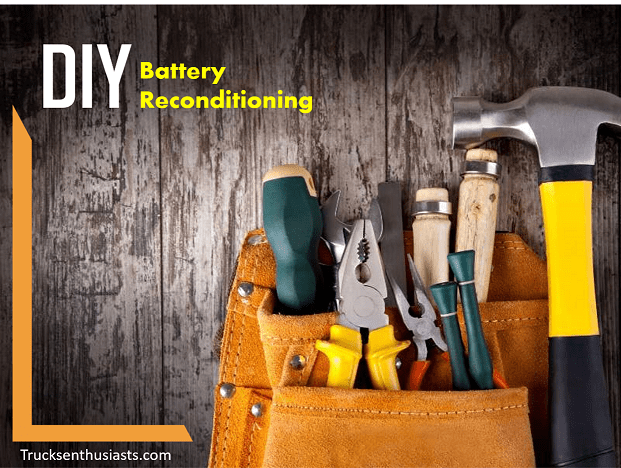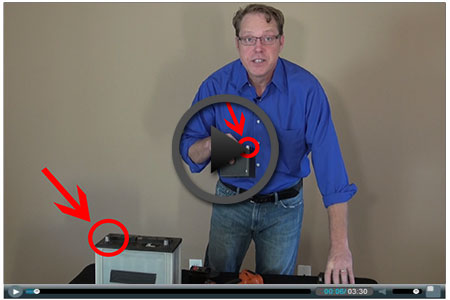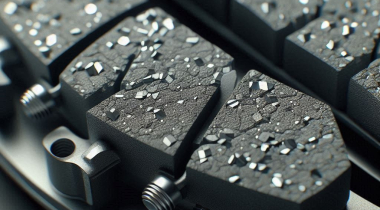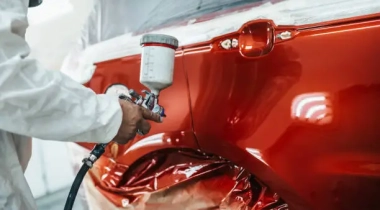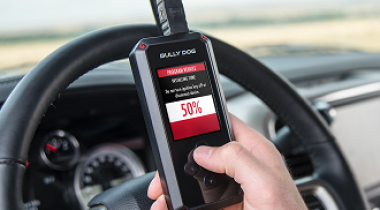Recondition your Battery in easy steps | DIY Battery Reconditioning

DIY Battery Reconditioning in Simple Steps
Reconditioning a battery is a cost-effective and environmentally friendly way to extend the life of your battery. With a few simple steps, you can breathe new life into a battery that is no longer holding a charge or is otherwise not working properly.
In this guide, we will walk you through the process of reconditioning a lead-acid battery, which is commonly used in automobiles and other vehicles.
We will cover the materials you will need, the steps you should take, and the precautions you should be aware of when reconditioning your battery. By following these instructions, you will be able to recondition your battery in a safe and efficient manner, and will be back on the road in no time.
Please keep in mind that safety is the first priority when working with batteries, so you should always wear protective gear, such as gloves and safety glasses, and take the necessary precautions to avoid creating any hazards.
Additionally, not all batteries are suitable for reconditioning, so you should consult the owner’s manual or the manufacturer’s website to determine if your battery can be reconditioned.
We will cover basic topics First, before moving towards the “Quick guide on how to recondition your battery“ , Pros & Cons of doing this and we will also cover some questions related to battery reconditioning.
How to recondition your any battery without any experience
Starting with Basic Question :
What is battery Reconditioning?
Battery reconditioning is the process of restoring a battery to a like-new condition, or as close to it as possible. This can involve several different techniques, such as recharging the battery, replacing the cells, or adjusting the electrolyte levels.
The goal of reconditioning is to make a battery that is no longer holding a charge, or is otherwise not working properly, usable again. It’s typically used for lead-acid batteries in automobiles and other vehicles, but can also be applied to other types of batteries, such as lithium-ion batteries.
Can all batteries be reconditioned?
Not all batteries can be reconditioned. The type of battery and its condition play a big role in determining if it can be reconditioned or not.
Lead-acid batteries, which are commonly used in automobiles and other vehicles, are often reconditioned. But this technique can also be applied to other types of batteries, such as Lithium-ion batteries under some circumstances but it is not recommened to rrecondition Li-ion batteries if you’re new in this!
Other types of batteries, such as disposable alkaline batteries or sealed lead-acid batteries, cannot be reconditioned and are meant to be replaced when they no longer hold a charge.
It’s always recommended to consult the owner’s manual or the manufacturer’s website to determine if your battery can be reconditioned.
What are the benefits of reconditioning a battery?
There are several benefits to reconditioning a battery:
- Cost savings: Reconditioning a battery can save you money by extending the life of your battery and allowing you to avoid buying a new one.
- Environmental benefits: Reconditioning batteries reduces the amount of waste generated by discarded batteries. It also reduces the environmental impact of mining and processing raw materials for new batteries.
- Convenience: Reconditioning a battery can be more convenient than buying a new one, especially if the battery is used in a hard-to-replace device.
- Reliability: A reconditioned battery will often have a better performance and reliability than a used battery that has not been reconditioned.
- Independence: if you are in an isolated or off-grid area, the ability to recondition a battery can be a significant advantage, allowing you to keep devices running when a replacement battery is not available.
- Money Making Business: Reconditioning a battery can turns out to be great money-making business. You can learn how to purchase old batteries, recondition them and then sell them for nice profit. This turns out to be great side business if you’re looking for one!
It’s important to note that not all batteries can be reconditioned, and the benefits of reconditioning a battery can vary depending on the type of battery and its condition.
Additionally, reconditioning a battery may not always bring it back to its original capacity, but it can improve the performance of the battery and its overall lifespan.
How often should I recondition my battery?
The frequency at which you should recondition your battery will depend on how frequently you use it and how well you maintain it. A battery that is frequently used and well-maintained may not need to be reconditioned as often as one that is not used as frequently or not well-maintained.
Lead-acid batteries, which are commonly used in automobiles and other vehicles, should be reconditioned every 1-2 years, depending on usage.
If you’re using a lead-acid battery in a vehicle that’s driven regularly, it’s a good idea to recondition it every year. If it’s not driven as frequently, reconditioning every two years should suffice.
Lithium-ion batteries, which are commonly found in smartphones, laptops, and other devices, should be reconditioned less frequently. They generally don’t need reconditioning until their capacity has dropped to around 80% or lower. Again! reconditioning of Li-ion batteries is not recommened for beginners.
It’s always a good idea to consult the owner’s manual or the manufacturer’s website for specific recommendations on how often to recondition a particular type of battery.
Additionally, you should also check your battery’s voltage and charging time, to have a general idea when it needs to be reconditioned.
The voltage at which a lead-acid battery requires reconditioning can vary depending on the specific type of battery and its condition. However, a common indicator that a lead-acid battery needs to be reconditioned is when the voltage falls below 12.4 volts when the battery is not in use.
It’s also important to note that reconditioning can be done only if the battery is still in good shape, if the battery is damaged or leaking, it should be replaced with new one.
Can I recondition my battery myself, or do I need to take it to a professional?
Reconditioning a battery can be done by individuals with some technical knowledge and the right tools, however it is not recommended for people without experience or knowledge. It’s always recommended to consult the owner’s manual or the manufacturer’s website to determine if your battery can be reconditioned and for any specific instructions or precautions you should take when reconditioning.
Additionally, if you’re not familiar with the process of reconditioning a battery, it’s best to consult with a professional. They will have the necessary tools and experience to safely and effectively recondition your battery.
It can also help to ensure that the reconditioned battery will perform as expected and will not be damaged during the process.
Keep in mind that reconditioning a battery involves working with chemicals and electrical components, so it’s important to take the necessary precautions to avoid creating any hazards. Wearing gloves and safety glasses is highly recommended.
Additionally, you should also make sure to work in a well-ventilated area and keep a fire extinguisher nearby.
In general, if you are not familiar with the process and are not comfortable working with batteries and electrical equipment, it would be best to take it to a professional. It’s better to be safe than sorry.
What are the risks associated with reconditioning a battery?
There are several risks associated with reconditioning a battery, which include:
- Fire and explosion hazards: Batteries contain flammable materials, and if they are not handled properly, they can catch fire or explode.
- Exposure to toxic materials: Many types of batteries contain toxic materials, such as lead and sulfuric acid, which can be harmful if they are not handled properly.
- Electrical hazards: Batteries can produce electrical currents, and if not handled properly, can cause electrical shock or electrocution.
- Damaging the battery: Improper reconditioning can lead to further damage of the battery, rendering it unusable.
- Discharging the Battery too much : over-discharging of the battery can cause permanent damage to the battery’s cells and reducing the overall lifespan.
- Overcharging the Battery : Overcharging the battery can cause permanent damage to the battery’s cells and reducing the overall lifespan
To minimize these risks, it is important to take the necessary precautions when reconditioning a battery. This includes wearing protective gear, such as gloves and safety glasses, and following proper safety procedures.
Additionally, it’s important to work in a well-ventilated area and have a fire extinguisher nearby. Always refer to the manual and guides before attempting to recondition a battery, also it is highly recommended to consult with a professional if you are not familiar with the process.
How to Recondition a battery with Easy steps without any prior experience?
There are multiple ways to do that. Here we have a Simple, Quick and Effective way to recondition your battery in easy steps. We mention only Lead-acid batteries here – if you want to recondition your car battery then only this article will be useful for you!
Click Here to See complete video and get recondition guide
And it doesn’t matter if you’re not technical or don’t know the first thing about batteries …because This course is incredibly easy to follow and absolutely anybody can use it.
Reconditioning a battery will not only save your extra bucks but also gives you opportunity to make money by purchasing old batteries, reconditioning them and sell them for a nice profit.
So, there are lot of benefits of reconditioning a battery.
Check out these easy steps to start reconditioning your battery now!!
Conclusion
In conclusion, reconditioning a battery is a cost-effective and environmentally friendly way to extend the life of your battery.
By following the proper steps, you can breathe new life into a battery that is no longer holding a charge or is otherwise not working properly.
This also becomes a effective way to start all together a new business that will help you earn thousands of bucks per month.
Keep in mind that not all batteries can be reconditioned and refer to the owner’s manual or the manufacturer’s website to determine if your battery can be reconditioned.
Additionally, reconditioning a battery can involve some risks, such as fire and explosion hazards, exposure to toxic materials, and damaging the battery. Therefore, it’s important to take the necessary precautions and follow proper safety procedures to minimize these risks.
Remember that the ultimate goal is to maintain the safety of the battery and keep it running efficiently.
If you have any query Feel free to add you thoughts in the comment section below.
We’ll happy to know your views.Do expect a quick reply.
Stay tunned for more updates.Thank You.

Vicky Dwaj, Founder and CEO of TrucksEnthusiasts , is an automobile engineer passionate about pickup trucks and accessories. Follow his journey to discover the latest trends in off-road accessories, cars, and truck parts.

